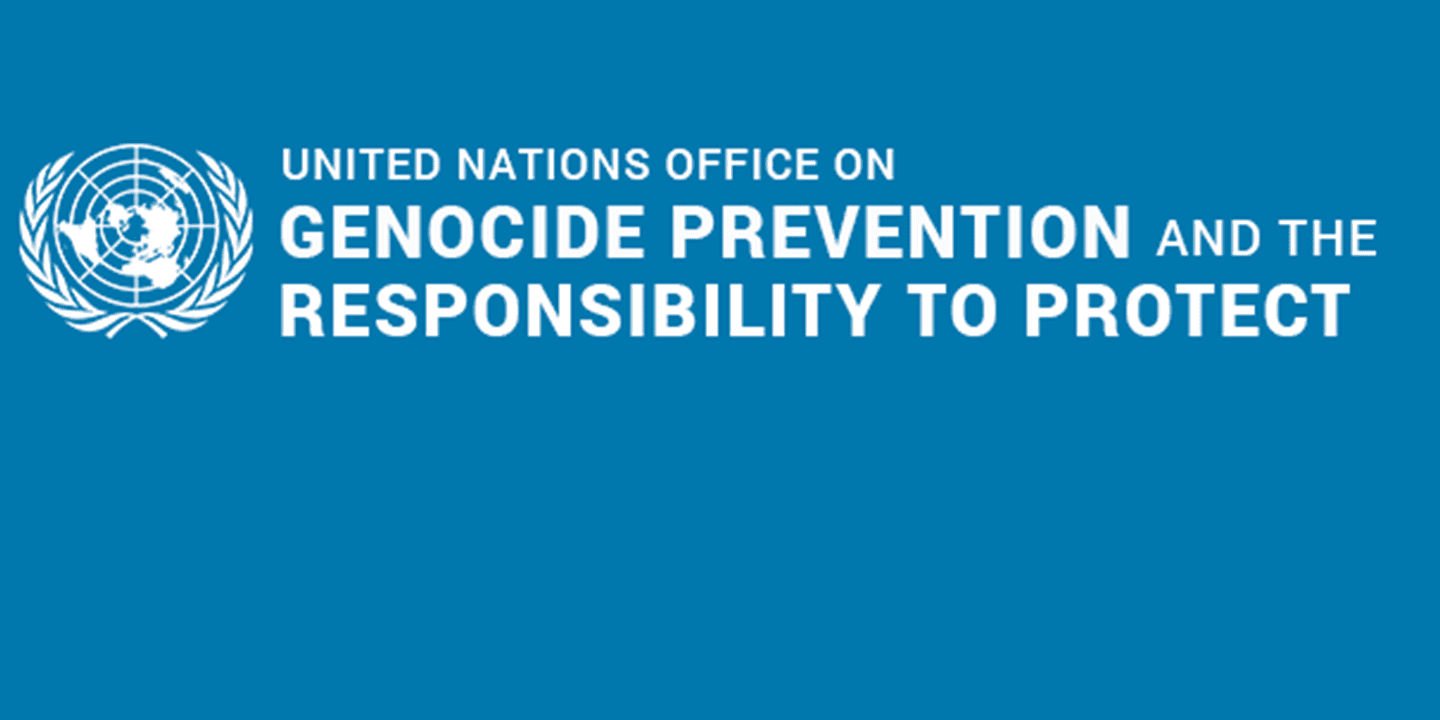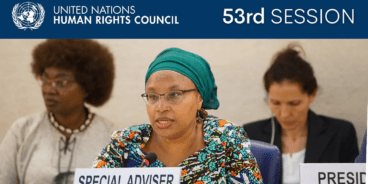
Statement by the UN Special Adviser on the Prevention of Genocide on the discovery of mass graves in Ituri, in the Democratic Republic of the Congo (DRC)
Recalling her statement issued on 30 November 2022 on the escalation of violence in parts of DRC, the United Nations Special Adviser on the Prevention of Genocide, Alice Wairimu Nderitu, reiterates her gravest concern about the further deterioration of the security and human rights situation, particularly in the Ituri Province. The Special Adviser has received alarming reports on multiple attacks against civilians along ethnic lines, as well as of mass killings, sexual violence, abductions, destruction of property and attacks against IDP camps perpetrated by armed actors. Since December 2022, at least 195 civilians allegedly lost their lives and many more have been injured.
On 13 January 2023, an attack reportedly by the CODECO armed group in the villages of Nyamamba and Mbogi, Djugu territory, Ituri province, resulted in at least 49 civilians (31 men, six children and 12 women) allegedly summarily executed. A few days later, two mass graves containing the bodies of 42 and seven civilians respectively were discovered in the same locations. “Whilst the situation in North and South Kivu requires immediate action, so does the situation in Ituri. Civilians are being massacred based on ethnic identity, yet again. The conditions necessary for the commission of atrocity crimes continue to be present in a region where a genocide happened in 1994. We need to do our outmost to make sure that history does not repeat itself” the Special Adviser stated while commending the ongoing efforts by the African Union and East African Community to negotiate steps to end the violent conflict and build a culture of sustainable peace in the region.”
Whilst the Ituri Province was relatively calm for several years, in 2017 armed groups resumed systematic attacks on villages. The violence, partly based on fights over natural resources, has roots in long-standing tensions and rivalries between two communities – the Hema, who are traditionally herders, and the farming Lendu. The Special Adviser has observed with concern the escalating violence and strongly condemns the widespread indiscriminate attacks allegedly conducted mainly by the CODECO, but also the Zaïre armed group and others that have been manipulating intercommunal tensions and targeting civilians along ethnic lines. The Special Adviser is also concerned about reports of multiple attacks that have been perpetrated against IDP camps, as well as of systematic use of sexual violence as a weapon of war and of authorities not fulfilling their duty to prevent violence. “Impunity cannot prevail. When such heinous crimes are committed, perpetrators must never get away with it”, the Special Adviser stressed. “The situation in Ituri remains extremely volatile. If we do not act promptly, the region may be engulfed in atrocity crimes as happened in the past,” the Special Adviser added.
The Special Adviser also welcomes the visit to the DRC of Pope Francis expected from 31 January to 3 February and calls on religious leaders and actors to work together on ways to prevent incitement to violence in line with her Office’s Plan of Action for Religious Leaders and Actors to Prevent Incitement to Violence that Could Lead to Atrocity Crimes.
The Special Adviser recalls her visit to DRC in 2022 as well as the technical-level mission by her Office in the same year which established that indicators and triggers contained in the UN Framework of Analysis for Atrocity Crimes are present in DRC including; dissemination of hate speech and absence of independent mechanisms to address it; politicization of identity; proliferation of local militias and other armed groups across the country; widespread and systematic attacks, including sexual violence.
The Special Adviser reiterates her continuous support towards strengthening existing prevention mechanisms, such as DRC’s National Committee for the Prevention and Punishment of the Crime of Genocide, War Crimes and Crimes against Humanity and all Forms of Discrimination established under the auspices of the International Conference for the Great Lakes Region (ICGLR) in accordance with the ICGLR Pact on Security, Stability and Development. As the United Nations focal point on hate speech, the Special Adviser also reiterates her support to the DRC Government to address hate speech trends in the country, in line with the UN Strategy and Plan of Action on Hate Speech.
Reiterating previous calls made by UN Secretary-General Antonio Guterres on all armed groups in DRC to cease attacks on civilians, participate unconditionally in the political process, including regional initiatives, and lay down their weapons through the Disarmament, Demobilization, Community Recovery and Stabilization Program, the Special Adviser welcomes commitments by the DRC Government to improve civilian protection. She also calls for protection gaps to be urgently addressed and for dialogues at all levels to be held with all armed actors without exception.
